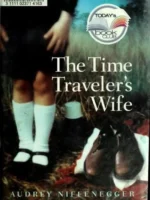The Notebook, Nicholas Sparks, 1996
- Author: Nicholas Sparks
- Genre: Romance
- Publisher: Warner Books
- Publication Year: 1996
- Pages: 214
- Format: Paperback
- Language: English
- ISBN: 978-1455582877
- Rating: 4,2 ★★★★☆
The Notebook Review
About
Published in 1996, Nicholas Sparks’s The Notebook is a modern classic of sentimental romance. It tells a simple story—a lifelong love tested by time, distance, and memory—but its emotional clarity made it a worldwide phenomenon. Sparks writes without irony, aiming straight for the heart. Whether you see it as comfort reading or cathartic fantasy, the novel’s sincerity is what keeps it alive.
Overview
The novel alternates between past and present. In the 1940s, Noah Calhoun, a working-class young man, falls for Allie Nelson, a wealthy girl spending the summer in North Carolina. Their love is immediate and overwhelming but torn apart by social class and family expectations. Years later, they meet again—older, changed, and still drawn to each other. The frame story reveals that an elderly man is reading this tale from a notebook to a woman in a nursing home, who listens as though hearing it for the first time. The structure itself becomes a meditation on memory and devotion.
Summary
(light spoilers) After years apart, Noah lives a quiet life restoring an old plantation house, still haunted by Allie’s absence. When she appears at his door—now engaged to another man—their reunion is both joyful and painful. Over a few days, they confront what time has done to them and what love still demands. Allie must choose between comfort and passion, between a safe future and a past that never really ended. The story’s framing twist reveals that the elderly couple are Noah and Allie themselves—he reads their history to her as she drifts in and out of awareness due to Alzheimer’s. The closing pages are tender and devastating: love becomes not memory, but persistence.
Key Themes / Main Ideas
• Enduring love — affection that survives time, class, and even memory loss.
• Devotion and care — love as daily labor, not just emotion.
• Fate and choice — how some bonds feel written long before logic intervenes.
• Memory — storytelling as a way to keep love alive.
• Sacrifice — the quiet heroism of showing up, again and again.
Strengths and Weaknesses
• Strengths — Simple language that delivers direct emotion; an unembarrassed belief in lifelong love.
• Strengths — The dual timeline gives emotional resonance, showing how young passion becomes enduring devotion.
• Weaknesses — Predictable beats; the sentimentality can feel heavy-handed to more cynical readers.
• Weaknesses — Secondary characters fade quickly; the focus stays tightly on the couple, for better or worse.
Reviewed with focus on themes, audience, and takeaways — Nicholas Sparks
| pa_author | Nicholas Sparks |
|---|---|
| ISBN | 978-4-398-80885-3 |
| pa_year | 1958 |
| Pages | 145 |
| Language | English |







